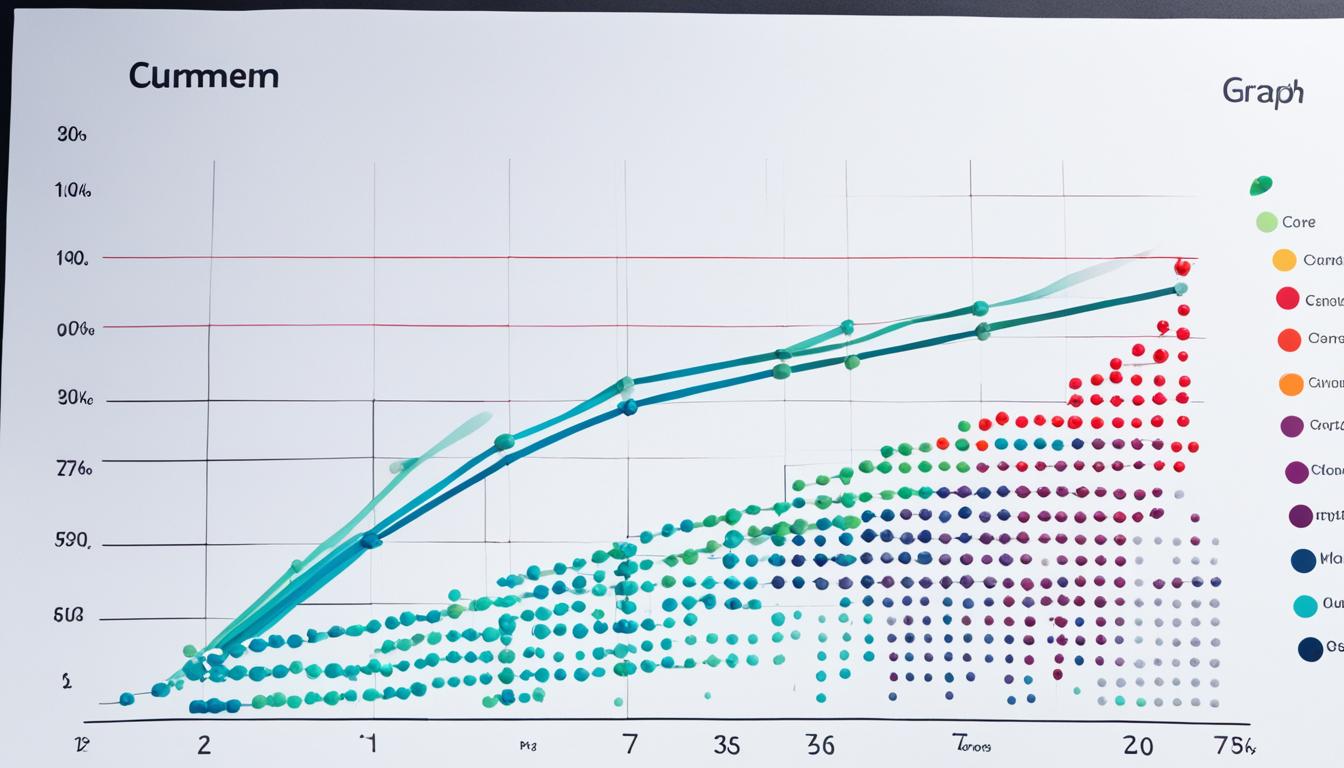Field marketing is a type of marketing that involves promoting a product, service, or brand directly to consumers or businesses in specific areas or fields. It focuses on face-to-face interactions, such as trade shows, events, or retail locations.
A field marketing manager is responsible for crafting local marketing strategies, coordinating marketing activities, managing field marketing teams, building partnerships, monitoring and evaluating performance, providing insights to the central marketing team, budget management, staying updated on industry trends, and aligning with sales teams.
Field marketing is important for building personalized connections, creating memorable experiences, gathering instant feedback, boosting brand awareness and recognition, combining with digital marketing, and excelling at events and special occasions.
Key Takeaways:
- A field marketing manager is responsible for crafting local marketing strategies, coordinating marketing activities, and managing field marketing teams.
- Field marketing focuses on face-to-face interactions and is important for building personalized connections and creating memorable experiences.
- Field marketing managers need to stay updated on industry trends, align with sales teams, and provide insights to the central marketing team.
- Field marketing combines with digital marketing strategies to boost brand awareness and recognition.
- Field marketing excels at events and special occasions, providing opportunities to showcase products and engage with consumers.
What is Field Marketing?
Field marketing is a marketing approach that involves directly interacting with target audiences in real-world settings. It focuses on in-person interactions, such as product demonstrations, experiential marketing events, in-store promotions, street team campaigns, and trade shows. Field marketing allows brands to create genuine connections, leave a lasting impression, gather instant feedback, boost brand awareness, and combine with digital marketing strategies.
Field marketing goes beyond traditional marketing methods by taking marketing efforts into the physical world. Rather than relying solely on digital channels, field marketing seeks to engage consumers through face-to-face interactions. By bringing the brand directly to consumers, whether it’s through product demonstrations or experiential events, field marketing creates opportunities for brands to establish a personal connection with their target audience. Through these interactions, brands can foster trust and build a loyal customer base.
One of the key benefits of field marketing is its ability to leave a lasting impression. In-person interactions allow brands to create memorable experiences that capture the attention of consumers and stand out from the competition. Whether it’s a unique event or an engaging product demonstration, these experiences leave a lasting impression and make the brand more memorable in the minds of consumers.
Field marketing is also a powerful tool for gathering instant feedback. Direct interactions with consumers provide valuable insights and allow brands to understand their customers’ preferences, needs, and pain points in real-time. This feedback can then be used to refine marketing strategies, improve products, and enhance the overall customer experience.
Furthermore, field marketing plays a crucial role in boosting brand awareness. By engaging with consumers on a personal level, brands can increase their visibility and spread awareness in a targeted manner. In addition to building brand awareness, field marketing can also complement digital marketing strategies. By combining in-person interactions with online campaigns, brands can create a seamless and integrated marketing approach that maximizes their impact.
Overall, field marketing is a dynamic and effective approach to marketing that allows brands to go beyond the digital realm and connect with consumers in a real-world setting. Through in-person interactions, brands can establish a genuine connection, leave a lasting impression, gather instant feedback, boost brand awareness, and enhance their overall marketing strategies.
Examples of Field Marketing Initiatives
Field marketing initiatives cover a wide range of activities, all aimed at engaging with consumers directly. Here are a few examples:
- Product demonstrations at retail locations
- Experiential marketing events
- In-store promotions
- Street team campaigns
- Trade shows and conferences
These initiatives allow brands to showcase their products, create memorable experiences, and interact with their target audience in a meaningful way. They provide an opportunity for brands to stand out, differentiate themselves, and build strong connections with consumers.
| Field Marketing Initiatives | Benefits |
|---|---|
| Product demonstrations | Allows consumers to see, touch, and experience the product firsthand, increasing their confidence in the brand. |
| Experiential marketing events | Creates memorable experiences that deepen the brand-customer relationship and leave a lasting impression. |
| In-store promotions | Drives foot traffic to retail locations, increases sales, and enhances brand visibility within the store. |
| Street team campaigns | Engages with consumers in high-traffic areas, raising awareness and generating interest in the brand. |
| Trade shows and conferences | Provides a platform to showcase products or services to targeted audiences, generating leads and fostering industry relationships. |
These initiatives highlight the versatility and effectiveness of field marketing in reaching and engaging consumers in a real-world setting. By utilizing a combination of these initiatives, brands can leverage the power of field marketing to achieve their marketing goals.
Who is a Field Marketing Manager?
A field marketing manager, also known as a field marketer or brand ambassador, plays a crucial role in executing field marketing initiatives. They are responsible for engaging directly with potential customers in the field, creating memorable brand experiences, and driving brand awareness.
Field marketing managers are the face of the brand, representing it in the local market. They interact with consumers face-to-face, distributing marketing materials, sharing product information, and listening to feedback. By establishing personal connections with customers, field marketing managers enhance brand relatability and create a lasting impact.
To succeed in their role, field marketing managers customize their campaigns to suit the local market. They take into consideration factors such as culture, region, and demographics to ensure relatability and resonance with the target audience. This localized approach helps strengthen the brand’s presence and market penetration.
Digital tools and data-driven approaches are integral to the field marketing manager’s toolkit. They leverage these tools to track the success of their campaigns, measure engagement levels, and gather valuable insights. By analyzing data and metrics, field marketing managers can make data-backed decisions to optimize their strategies and improve campaign effectiveness.
Field marketing managers serve as a vital link between broader marketing strategies and their execution in specific local markets. They bridge the gap by translating the central marketing team’s vision into actionable initiatives that resonate with the target audience on a local level.
Overall, field marketing managers are instrumental in driving brand experience, creating personalized connections, and maximizing brand visibility in the field. Their expertise in navigating the local market, coupled with their use of digital tools and data-driven approaches, ensures the success of field marketing initiatives.
What Does a Field Marketing Manager Do?
A field marketing manager plays a crucial role in driving the success of field marketing initiatives. This involves a diverse range of responsibilities, including:
- Crafting local marketing strategies: The field marketing manager is responsible for developing tailored strategies that align with the unique characteristics of each local market. They take into account factors such as the local culture, region, and demographics to ensure the marketing efforts resonate with the target audience and drive desired outcomes.
- Coordinating marketing activities: The field marketing manager acts as the hub of coordination for various marketing activities within their designated region. They ensure seamless execution of campaigns, promotions, events, and other initiatives, working closely with internal teams, external partners, and stakeholders.
- Managing field marketing teams: The field marketing manager oversees and directs field marketing teams, guiding their activities, providing support and training, and ensuring optimal performance. They are responsible for building and nurturing a high-performing team that delivers exceptional results.
- Building partnerships with local businesses and influencers: The field marketing manager establishes strategic partnerships with local businesses, influencers, and community organizations to amplify the brand’s reach and impact. They leverage these partnerships to create collaborative marketing campaigns, co-branded events, and other initiatives that drive brand visibility and customer engagement.
- Monitoring and evaluating performance: The field marketing manager tracks and analyzes the performance of field marketing initiatives to assess their effectiveness and identify areas for improvement. They utilize various metrics and data-driven insights to measure the impact of campaigns, evaluate ROI, and make data-backed decisions to optimize future strategies.
- Providing insights and feedback: The field marketing manager acts as a bridge between the field and the central marketing team. They provide valuable insights and feedback based on their on-the-ground experience, helping the central team refine their strategies and improve overall marketing effectiveness.
- Managing the budget allocated to marketing activities: The field marketing manager is responsible for budget management, ensuring that allocated funds are used efficiently and effectively to achieve marketing objectives. They closely monitor expenses, optimize spending, and prioritize investments based on strategic goals and expected returns.
- Staying updated on industry trends: The field marketing manager keeps abreast of industry trends, market dynamics, and competitor activities. This includes staying informed about the latest marketing techniques, emerging technologies, consumer behavior shifts, and industry best practices. They apply this knowledge to drive innovation and ensure the brand remains competitive.
- Aligning with the sales team: The field marketing manager collaborates closely with the sales team to align marketing efforts with sales objectives. They work together to support lead generation, optimize the customer journey, and enhance the overall sales and marketing synergy.
By effectively fulfilling these duties, a field marketing manager plays a pivotal role in driving brand success, maximizing market penetration, and building strong connections with target audiences.
The Importance of Field Marketing
Field marketing plays a crucial role in successful marketing strategies, offering numerous benefits for brands. Let’s explore why field marketing is important and how it can drive business growth.
1. Personalized Connections: Field marketing enables brands to foster personalized connections with consumers through face-to-face interactions. By engaging directly with customers, field marketing creates a sense of trust and authenticity, helping to establish long-lasting relationships.
2. Memorable Experiences: Field marketing initiatives are designed to create memorable experiences for consumers. Whether it’s through immersive events, engaging product demonstrations, or interactive installations, field marketing leaves a lasting impression on customers, leading to increased brand recall and positive word-of-mouth promotion.
3. Instant Feedback: One of the unique advantages of field marketing is the ability to gather instant feedback from consumers in real-time. Through face-to-face interactions, brands can directly listen to customer opinions, preferences, and concerns, allowing them to make immediate adjustments to their marketing efforts for better results.
4. Boosting Brand Awareness: Field marketing plays a vital role in building brand awareness, especially in new markets or among target audiences. By engaging with potential customers directly, field marketing initiatives generate attention and interest, helping to increase brand visibility and recognition in the marketplace.
5. Digital Marketing Combination: Field marketing can be seamlessly combined with digital marketing strategies to create a comprehensive marketing approach. By leveraging digital channels such as social media, email marketing, and online advertising, brands can maximize their reach and engagement, amplifying the impact of their field marketing efforts.
6. Events and Special Occasions: Field marketing excels at events and special occasions, providing the perfect platform for brands to showcase their products or services. Whether at trade shows, conferences, or community events, field marketing initiatives create excitement, drive interest, and facilitate meaningful connections between brands and consumers.
7. Strong Local Relationships: Field marketing activities contribute to the development of strong local relationships. By actively engaging with local communities and stakeholders, brands can build loyalty, advocacy, and strong relationships within those communities, enhancing their reputation and goodwill.
In summary, field marketing offers unique advantages that are indispensable for brands looking to create personalized connections, deliver memorable experiences, gather instant feedback, boost brand awareness, and build strong relationships within local communities. When combined with digital marketing strategies and executed at events and special occasions, field marketing becomes a powerful tool for driving brand success.
Field Marketing Initiatives
Field marketing initiatives encompass a range of activities that allow brands to connect directly with their target audiences. These initiatives include:
Product Demonstrations
Product demonstrations involve showcasing and demonstrating the features and benefits of a product at retail locations, trade shows, or events. By allowing customers to interact with the product firsthand, brands can create memorable experiences and highlight the value it offers.
In-Store Promotions
In-store promotions collaborate with retail partners to create enticing displays, discounts, or giveaways. These promotions attract customers to the store and incentivize them to make a purchase, increasing sales and brand visibility.
Experiential Marketing Events
Experiential marketing events create memorable brand experiences through pop-up shops, interactive installations, and immersive experiences. These events engage customers on a deeper level, leaving a lasting impression and fostering a strong connection to the brand.
Street Team Campaigns
Street team campaigns engage with people in high-traffic areas through the distribution of samples, promotional materials, and conversation. These campaigns allow brands to engage with potential customers directly, gather feedback, and increase brand awareness.
Trade Shows and Conferences
Trade shows and conferences provide platforms for showcasing products or services to targeted audiences. These events attract industry professionals and potential customers, offering brands the opportunity to generate leads, network, and build relationships.
Field Sales Campaigns
Field sales campaigns involve direct selling to customers in their homes, workplaces, or other locations. Field sales representatives use their expertise to provide personalized recommendations, address customer concerns, and drive sales.
Guerrilla Marketing
Guerrilla marketing employs unconventional tactics in public spaces to create memorable experiences and generate buzz around a brand. By thinking outside the box and leveraging creativity, brands can make a strong impact on their target audience.
Sponsorship Leveraging
Field marketing initiatives can also leverage sponsorships to enhance brand visibility and credibility. By partnering with relevant organizations or events, brands can reach a wider audience and align themselves with their target market’s interests.
Each of these field marketing initiatives serves a unique purpose and contributes to building brand awareness, driving sales, and creating meaningful connections with customers.
| Field Marketing Initiative | Description |
|---|---|
| Product Demonstrations | Showcasing and demonstrating a product’s features and benefits at retail locations, trade shows, or events |
| In-Store Promotions | Collaborating with retail partners to create enticing displays, discounts, or giveaways |
| Experiential Marketing Events | Creating memorable brand experiences through pop-up shops, interactive installations, and immersive experiences |
| Street Team Campaigns | Engaging with people in high-traffic areas through the distribution of samples, promotional materials, and conversation |
| Trade Shows and Conferences | Providing platforms for showcasing products or services to targeted audiences |
| Field Sales Campaigns | Direct selling to customers in their homes, workplaces, or other locations |
| Guerrilla Marketing | Employing unconventional tactics in public spaces to create buzz and lasting brand impressions |
| Sponsorship Leveraging | Using sponsorships to enhance brand visibility and credibility |
These diverse field marketing initiatives allow brands to connect with their target audience in various settings and create impactful experiences that drive brand recognition, loyalty, and sales.
Field Marketing Organization
To effectively execute field marketing campaigns, companies often establish dedicated field marketing organizations within their company structure. These organizations consist of regional managers who oversee large territories and assign team leaders for smaller locales. A field marketing team typically includes field marketing representatives, brand ambassadors, street team representatives, and field marketing managers. Field marketing organizations work closely with sales and marketing teams to align strategies, develop campaigns, and ensure successful execution.
| Field Marketing Organization Structure | Roles and Responsibilities |
|---|---|
| Regional Managers | Oversee large territories and coordinate field marketing activities. |
| Team Leaders | Manage smaller locales within the region and provide guidance to field marketing representatives. |
| Field Marketing Representatives | Engage directly with potential customers, distribute marketing materials, and share product information. |
| Brand Ambassadors | Represent the brand at events, trade shows, and promotional activities to create brand experiences. |
| Street Team Representatives | Engage with people in high-traffic areas through sampling, promotions, and conversations to create grassroots awareness. |
| Field Marketing Managers | Oversee field marketing strategies, team management, performance monitoring, and coordination with sales and marketing teams. |
Field marketing organizations play a critical role in the successful execution of field marketing campaigns. Regional managers ensure effective coordination and provide strategic guidance to their team leaders. Team leaders, in turn, oversee the activities within their specific locales and support the field marketing representatives in executing their roles. Field marketing representatives engage directly with potential customers, distributing marketing materials, sharing product information, and collecting valuable feedback. Brand ambassadors create memorable brand experiences at events and trade shows, enhancing brand recognition and brand affinity. Street team representatives engage with consumers in high-traffic areas, spreading brand awareness through personalized interactions. Field marketing managers oversee the overall field marketing strategy, ensuring alignment with sales and marketing teams, monitoring campaign performance, and providing critical insights to further improve customer engagement and brand success.
Field marketing organizations work hand in hand with sales and marketing teams to align strategies, develop targeted campaigns, and ensure successful execution. This collaboration fosters synergy between different departments, enabling a cohesive and integrated approach to marketing and sales efforts. By leveraging the unique strengths of field marketing teams, companies can create meaningful connections with customers, generate brand loyalty, and drive business growth.
Field Marketing vs. Traditional Marketing
Field marketing and traditional marketing are two approaches that companies use to promote their products and engage with customers. While traditional marketing encompasses various tactics such as advertising and digital strategies, field marketing focuses on direct customer interactions in real-world settings. Let’s explore how these two marketing methods differ and how they can work together to maximize the effectiveness of marketing campaigns.
The Power of Customer Interactions
One of the key distinctions between field marketing and traditional marketing is the level of customer interactions. Traditional marketing relies heavily on one-way communication channels such as TV ads, radio commercials, or online banners. On the other hand, field marketing adds a personal touch by engaging customers face-to-face, allowing for real-time feedback and instant connections. These interactions provide valuable insights that can shape the marketing strategy and enhance the customer experience.
The Agility of Field Marketing
Another advantage of field marketing is its agility. Field marketing campaigns are designed to be flexible and adaptable, allowing companies to collect and analyze data about their campaigns more rapidly. With this data in hand, adjustments can be made in real-time, optimizing the marketing message, targeting, and placement. The agility of field marketing enables companies to stay responsive to market trends and customer demands, maximizing the impact of their campaigns.
Integration for Enhanced Marketing Campaigns
While field marketing and traditional marketing may seem like separate entities, they can work hand in hand to create comprehensive and impactful marketing campaigns. By combining the personal touch and agility of field marketing with the wider reach of traditional marketing, companies can maximize their brand exposure and engagement. Field marketing activities can drive awareness and generate leads, while traditional marketing tactics can amplify the reach and reinforce the messaging. This integration creates a cohesive and holistic marketing approach that leverages the strengths of each method for optimal results.
Conclusion
In today’s competitive business landscape, field marketing managers play a crucial role in driving brand success. They are responsible for crafting local marketing strategies, coordinating activities, managing teams, and ensuring the seamless execution of field marketing initiatives. Through their efforts, field marketing builds personalized connections, creates memorable experiences, and gathers instant feedback.
Field marketing encompasses various initiatives such as product demonstrations, in-store promotions, experiential events, street team campaigns, trade shows, guerilla marketing, and sponsorship leveraging. These initiatives work hand in hand to boost brand awareness, foster strong local relationships, and maximize consumer engagement.
Field marketing organizations provide the structure and support necessary for successful campaigns. They collaborate with sales and marketing teams to align strategies, analyze industry trends, and execute data-driven approaches. By complementing traditional marketing efforts, field marketing brings a personal touch to customer interactions and offers agility in adjusting campaigns to meet evolving market demands.
As companies continue to recognize the importance of face-to-face interactions, the role of field marketing and the skillset of field marketing managers become increasingly valuable. With their expertise, organizations can effectively connect with consumers, differentiate themselves from competitors, and drive sustainable growth.





